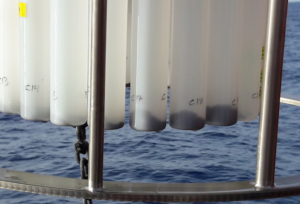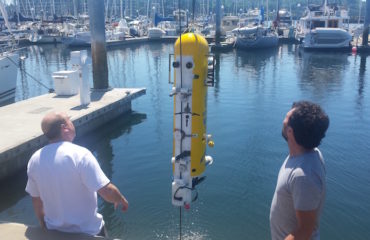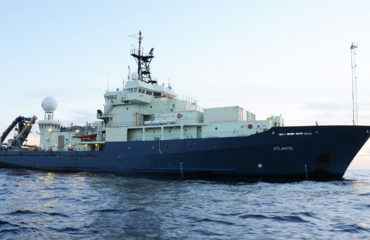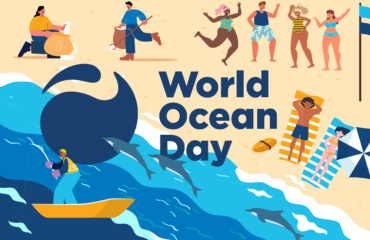
Credit: DeepLev photographers
McLane sediment traps in Israel’s first permanent Deep Sea Research Station (DeepLev), have been instrumental in collecting an uncommon species of fish. Sediment traps along the station’s cable filled with fish called “sharpchin barracudina” which have rarely been documented in the waters near Israel and whose adult fish have never been reported in scientific literature.
DeepLev, located off the coast of Israel, uses state of- the-art instruments including sediment traps, distributed along a cable running from the seabed to the sea surface for continuous study of the physical and ecological system in the eastern Mediterranean, including monitoring environmental changes.
In addition to the surprise collection of sharpchin barracudina, Researchers Dr. Olga Zlatkin, and doctoral student Ronen Alkalay, studied materials from the sediment traps which indicated a constant flow of particles from the surface to the bottom of the sea, enabling the transport of organic carbon for safekeeping in the “dark zone” of the sea – more than 1,000 m. down – which is part of the biological pump that carries carbon from the sea surface to the deep sea.
Sediment findings also suggest that the flow of particles and the efficiency of the biological pump increases during winter storms, when large quantities of dust and materials drifting from the seabed in the coastal region reach the open sea.
DeepLev is operated by Bar-Illan University Professors Yishai Weinstein, and Ilana Berman-Frank, Israel Oceanographic and Limnological Research (IOLR) Professors Barak Herut and Dr. Timor Katz, and researchers from Hebrew University, Tel Aviv University and the Geological Survey. Following the success of a year-long pilot program, the permanent DeepLev station is now in place.
McLane Sediment Traps collect vertically settling particles into individual sample bottles which are sealed when not in collection mode. See the Sediment Trap page on our website for more information.



